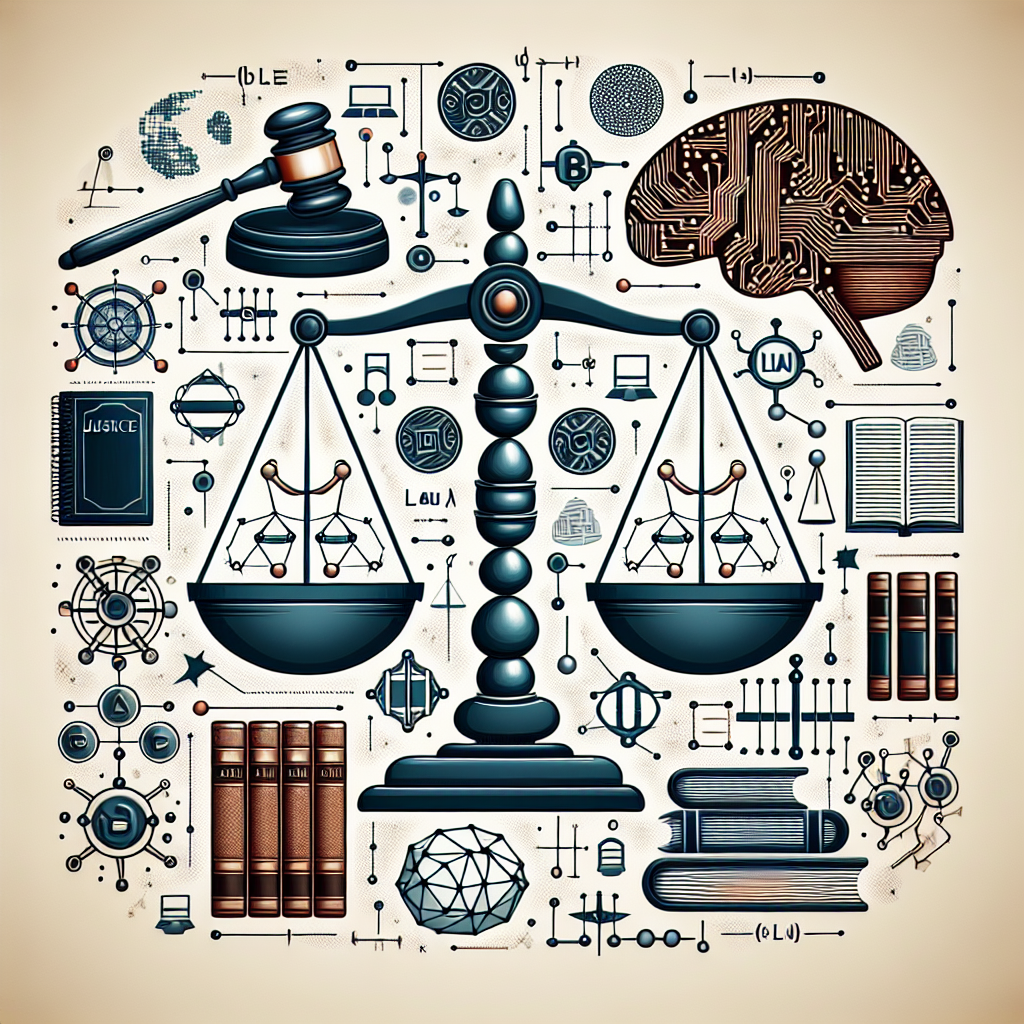In recent years, the use of artificial intelligence (AI) in legal practice has become more prevalent. AI technologies have the potential to significantly improve efficiency, accuracy, and cost-effectiveness in legal services. However, the use of AI in the legal industry also presents unique ethical challenges that must be addressed to ensure that AI is used responsibly and ethically. Implementing AI ethics guidelines in legal practice is essential to ensure that AI technologies are used in a way that upholds the principles of fairness, transparency, accountability, and privacy.
The American Bar Association (ABA) has recognized the importance of addressing ethical issues related to the use of AI in legal practice. In 2018, the ABA adopted Resolution 112, which encourages lawyers to be knowledgeable about AI technologies and their potential impact on the practice of law. The resolution also calls for the development of guidelines and best practices for the ethical use of AI in legal practice.
One of the key ethical issues related to the use of AI in legal practice is bias. AI algorithms can unintentionally perpetuate biases present in the data used to train them, leading to discriminatory outcomes. For example, if an AI algorithm is trained on historical data that reflects biases against certain groups, the algorithm may produce biased results that further disadvantage those groups. To address this issue, legal professionals must be vigilant in monitoring AI systems for bias and take steps to mitigate bias through techniques such as data preprocessing, algorithmic transparency, and bias testing.
Another ethical issue related to the use of AI in legal practice is transparency. AI algorithms are often complex and opaque, making it difficult for users to understand how decisions are made. This lack of transparency can undermine accountability and due process, as users may not be able to challenge or appeal decisions made by AI systems. To address this issue, legal professionals must ensure that AI systems are designed to be transparent and provide explanations for their decisions. This may involve using interpretable machine learning models, providing decision-making logs, and implementing mechanisms for users to request explanations for AI decisions.
In addition to bias and transparency, privacy is another important ethical issue related to the use of AI in legal practice. AI systems often process large amounts of sensitive personal data, raising concerns about data security and privacy breaches. Legal professionals must take steps to protect the confidentiality and privacy of client data when using AI technologies. This may involve implementing data encryption, access controls, and data anonymization techniques to safeguard sensitive information.
To help legal professionals navigate the ethical challenges of using AI in legal practice, several organizations have developed AI ethics guidelines and best practices. For example, the ABA’s Center for Innovation has published a set of AI ethics guidelines for legal professionals, which provide recommendations for ensuring the responsible and ethical use of AI in legal practice. These guidelines cover a range of topics, including bias mitigation, transparency, accountability, and privacy protection.
Implementing AI ethics guidelines in legal practice requires a multi-faceted approach that involves legal professionals, technologists, policymakers, and other stakeholders. Legal professionals must be educated about the ethical implications of using AI technologies and be proactive in addressing ethical issues in their practice. Technologists must design AI systems with ethical considerations in mind, such as fairness, transparency, and privacy. Policymakers must develop regulations and standards to govern the use of AI in legal practice and hold organizations accountable for ethical violations.
In conclusion, implementing AI ethics guidelines in legal practice is essential to ensure that AI technologies are used responsibly and ethically. By addressing issues such as bias, transparency, and privacy, legal professionals can harness the potential of AI to improve legal services while upholding ethical principles. By following best practices and guidelines for the ethical use of AI, legal professionals can build trust with clients, uphold the rule of law, and promote fairness and justice in the legal system.
FAQs:
Q: What are some common ethical issues related to the use of AI in legal practice?
A: Some common ethical issues related to the use of AI in legal practice include bias, transparency, and privacy. AI algorithms can unintentionally perpetuate biases present in training data, leading to discriminatory outcomes. Lack of transparency in AI systems can undermine accountability and due process, as users may not understand how decisions are made. Privacy concerns arise from the processing of sensitive personal data by AI systems.
Q: How can legal professionals address bias in AI systems?
A: Legal professionals can address bias in AI systems by monitoring AI systems for bias, mitigating bias through techniques such as data preprocessing and algorithmic transparency, and conducting bias testing to ensure fair outcomes. It is also important to use diverse and representative training data to reduce the risk of biased outcomes.
Q: What are some best practices for ensuring transparency in AI systems?
A: Some best practices for ensuring transparency in AI systems include using interpretable machine learning models, providing decision-making logs, and implementing mechanisms for users to request explanations for AI decisions. Transparency is essential for accountability and due process in legal practice.
Q: How can legal professionals protect the privacy of client data when using AI technologies?
A: Legal professionals can protect the privacy of client data when using AI technologies by implementing data encryption, access controls, and data anonymization techniques. It is important to safeguard sensitive information and comply with data protection regulations to prevent privacy breaches.
Q: What resources are available to help legal professionals navigate the ethical challenges of using AI in legal practice?
A: Several organizations, such as the ABA’s Center for Innovation, have developed AI ethics guidelines and best practices for legal professionals. These resources provide recommendations for ensuring the responsible and ethical use of AI in legal practice, covering topics such as bias mitigation, transparency, accountability, and privacy protection.

